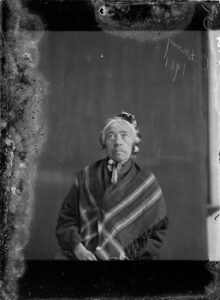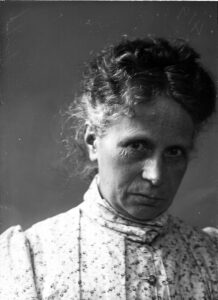Religion
Christianity, including biblical quotations and popular hymns, was an important cultural reference point for people of all classes in early twentieth-century Britain. Religious affiliation data was collected on admissions to the hospital, and most people admitted to the hospitals recorded either Church of England or Roman Catholic.
‘Religious mania’ was not an uncommon diagnosis also accompany descriptions of visions, delusions and aural hallucinations. The battle in people’s minds for their sanity would sometimes we expressed as a fight between good and evil, God and Jesus versus Satan and malevolent spirits or demons.
Sometimes mental health struggles around mood swings and obsessive-compulsive behaviour might express itself in heightened religious observance or practice – praying constantly, receiving spiritual communications or fanatical devotional observances such as a fixation with rosary beads or bibles.
Yet for others, prayers and relational conversation with God, Mary and the saints might also provide comfort, psychological support, and emotional resources to deal with pain, fear, grief and distress.
If there therefore unsurprising that within many of the Epsom medical records, references to faith, belief, prayer and the supernatural frequently appear.


